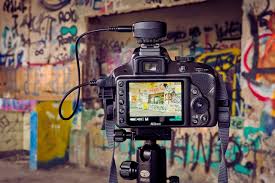What is Digital Photography?
Digital photography is a modern form of photography that uses electronic devices to capture, store, and display images. Unlike traditional film photography, which relies on chemical processes to develop images, digital photography records images electronically using sensors.
The key component of digital photography is the digital camera, which replaces the traditional film camera. Digital cameras use image sensors to capture light and convert it into digital data. This data is then stored on memory cards or internal storage within the camera.
One of the main advantages of digital photography is the ability to instantly view and edit images. With a digital camera, photographers can review their shots immediately after capturing them, allowing for adjustments to be made on the spot. This instant feedback loop has revolutionised the way photographers work and has led to more experimentation and creativity in image-making.
Furthermore, digital photography offers a wide range of editing possibilities through software applications such as Adobe Photoshop or Lightroom. Photographers can adjust exposure, colour balance, sharpness, and other aspects of an image with precision, giving them greater control over the final result.
In addition to cameras and editing software, digital photography has also opened up new avenues for sharing and showcasing images. Online platforms like social media sites, photo-sharing websites, and online galleries allow photographers to reach a global audience with their work.
Overall, digital photography has democratised the art form by making it more accessible to a wider range of people. Whether you are a professional photographer or an amateur enthusiast, digital photography offers endless opportunities for creativity and expression in the modern age.
Understanding Digital Photography: Key Questions and Answers
- What is digital photography?
- How does digital photography differ from traditional film photography?
- What are the advantages of digital photography over film photography?
- What equipment do I need to start with digital photography?
- How can I improve my digital photography skills?
What is digital photography?
Digital photography is a contemporary method of capturing images using electronic devices instead of traditional film. In essence, digital photography involves using digital cameras equipped with image sensors to record light and convert it into digital data, which is then stored in the camera’s memory. This shift from film to digital technology has revolutionised the way we take, view, and edit photographs, offering instant feedback and a myriad of editing possibilities. The advent of digital photography has not only made the art form more accessible to a wider audience but has also opened up new avenues for sharing and showcasing images through online platforms and social media.
How does digital photography differ from traditional film photography?
Digital photography differs from traditional film photography in the way images are captured and stored. In traditional film photography, images are recorded on light-sensitive film that needs to be developed using chemical processes to produce a physical print. On the other hand, digital photography uses electronic sensors in digital cameras to capture light and convert it into digital data. This data is then stored on memory cards or internal storage within the camera, allowing for instant viewing, editing, and sharing of images without the need for physical prints or developing processes. The shift to digital photography has revolutionised the way photographers work, offering greater flexibility, immediacy, and control over the final output compared to traditional film methods.
What are the advantages of digital photography over film photography?
Digital photography offers several advantages over film photography. One key benefit is the immediate feedback that digital cameras provide, allowing photographers to review and adjust their shots on the spot. Digital images can be easily edited and manipulated using software tools, offering greater control over the final result. Additionally, digital photography eliminates the need for expensive film rolls and development costs, making it a more cost-effective option in the long run. The convenience of storing and sharing digital images electronically further enhances the appeal of digital photography, enabling photographers to reach a wider audience and showcase their work online effortlessly.
What equipment do I need to start with digital photography?
To start with digital photography, you will need a digital camera, which is the essential piece of equipment for capturing images in electronic format. There are various types of digital cameras available, ranging from compact point-and-shoot cameras to more advanced DSLRs or mirrorless cameras. Additionally, having a memory card to store your photos is crucial, as well as a reliable computer or laptop for transferring and editing your images using editing software. Investing in a good quality lens suitable for your photography needs can also enhance the quality of your photos. Lastly, consider accessories like camera bags, tripods, and cleaning kits to protect and maintain your equipment while out shooting. With these basic tools in hand, you can begin your journey into the exciting world of digital photography.
How can I improve my digital photography skills?
To enhance your digital photography skills, consider practising regularly and experimenting with different settings on your camera to understand their effects. Familiarise yourself with composition techniques such as the rule of thirds and leading lines to create visually appealing images. Additionally, learning about lighting and how it can influence your photos is crucial. Take advantage of online resources, photography courses, and workshops to gain new insights and techniques. Don’t be afraid to seek feedback from other photographers or join photography communities for constructive criticism and inspiration. Remember, practice, patience, and a willingness to learn are key to improving your digital photography skills over time.

